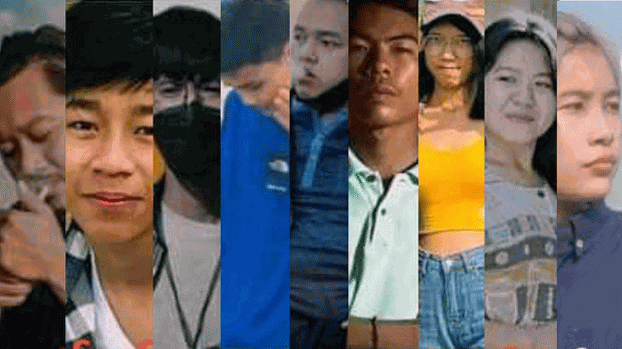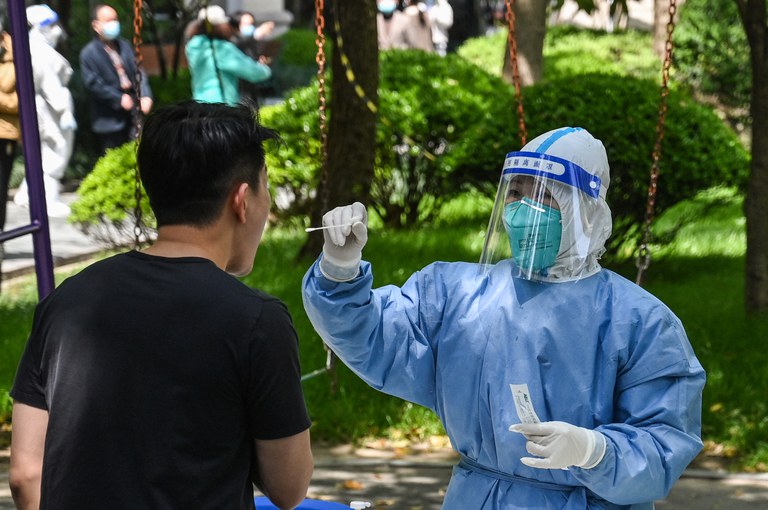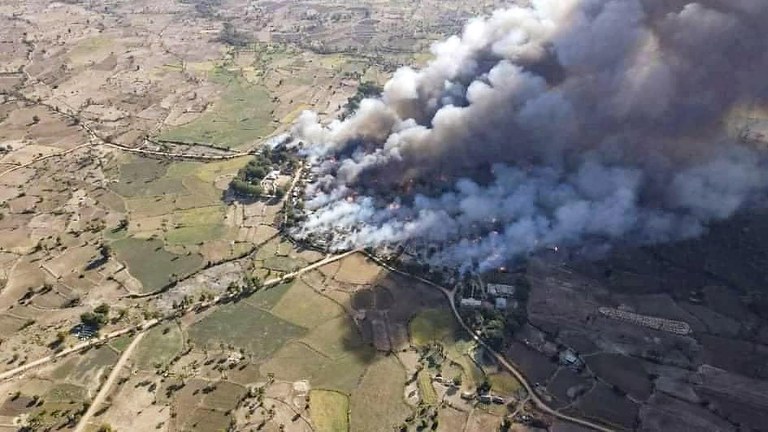Public anger grows in China over ‘Cultural Revolution-style’ disease prevention
Public criticism is growing in China of the authorities’ Cultural Revolution-style anti-COVID-19 campaigns after a doctor committed suicide over a hospital outbreak and officials killed pets whose owners tested positive for the virus. While most criticism or negative news about the ruling Chinese Communist Party (CCP)’s zero-COVID policy is swiftly removed by internet censors, reports have surfaced in recent days that Shi Jun, head of neurosurgery at the Jidong County People’s Hospital in the northeastern province of Heilongjiang, committed suicide after being arrested and interrogated by police in connection with a COVID-19 outbreak at his hospital. The outbreak was started by a woman who used her mother’s PCR test result to gain admission to the hospital for brain surgery, but who passed the virus on to other patients, causing an outbreak that led to a county-wide lockdown and billions of yuan in economic losses, according to local media reports. Shi was arrested and interrogated by police over seven days for hours at a time, forcing him to wear handcuffs and leg irons when he went for a medical checkup, and threatening him with a heavy sentence if he didn’t “confess.” He managed to take his own life while in detention by breaking his toothbrush and using it to stab an artery in his thigh, according to social media posts, many of which were quickly deleted. A fellow Jidong county doctor surnamed Chen told RFA the Shi had died in the course of the investigation into the outbreak. “Yes, it’s true, he really is dead,” Chen said. “It’s been more than a week now, I think.” “I don’t know the details, because I don’t work at the same place, but I heard it was because of a mistake or negligence at work, giving rise to an outbreak of COVID-19,” he said. An employee who answered the phone at the Jidong County People’s Hospital refused to comment on the case when contacted by RFA on Thursday. “I don’t know about this; we’re not in the same department … we didn’t know each other that well, there are hundreds of people who work here, and we had very little contact,” the employee said. “What media organization are you from?” “You can call management [and ask them],” the employee said. Shi was among thousands of doctors who volunteered to work on the front line of the early pandemic in the central city of Wuhan in February 2020, working at the Yingcheng Traditional Chinese Medicine Hospital for 39 days. He was lauded by state media as a hero of the pandemic, with his wife and children appearing on TV, and his family named as “the most beautiful family” of Heilongjiang by the CCP-backed Jixi Women’s Federation, as part of CCP leader Xi Jinping’s insistence on positive news stories about the pandemic. An employee who answered the phone at the Jixi Women’s Federation declined to comment when contacted by RFA on Thursday. “We don’t know much about this,” the employee said. “If you want to ask about the most beautiful family, the person in charge of that department isn’t here … You can always call again later.” An employee who answered the phone at the Yingcheng Traditional Chinese Medicine Hospital also declined to comment. “I haven’t been contact with him … I didn’t work with him, OK?” the employee said, before hanging up the phone. Calls to the Jidong county police department, the county health bureau and the Jidong county government rang unanswered during office hours on Thursday. Public anger over China’s “campaign-style” approach to managing COVID-19 appears to be breaking through onto social media despite official attempts to erase it. Genuine hardship Shanghai resident Ji Xiaolong, who has been under COVID-19 lockdown alongside 26 million others for several days now, has been warned off speaking out in public after he published a petition to the authorities in Beijing, hitting out at the zero-COVID policy. “I hope my petition will be placed on Xi Jinping’s desk,” Ji told RFA on Thursday, adding that he has been taking two or three phone calls a minute from people across China since he posted it. “[They call from] all over the country; there are also overseas Chinese, ordinary people who have escaped from Shanghai,” he said. “[I’ve had] thousands of phone calls, text messages, WeChat, voice notes and Weibo comments.” Ji also hit out an online censorship, saying that much of the information posted to social media is genuine, and not “rumors,” as claimed by the government. “The Shanghai government debunks a [so-called] rumor every two minutes,” he said. “Are there really so many rumors? These rumors are often later confirmed, so they’re not necessarily rumors.” Ji said the restrictions have caused genuine hardship in his residential community. “There are people in our community who need to go to the hospital on a regular basis,” Ji said. “I saw [one of them] begging [officials] in our WeChat group. There is a neighborhood committee for our community, but they need to report [trips for medical attention] to higher ups, one level after another, and several days have gone by.” “There are others who are unwilling to beg, because of their dignity, so they endure the pain instead; they definitely exist too.” ‘They’re like the Red Guards’ U.S.-based commentator Chen Pokong said there’s a joke circulating in Shanghai that the government doesn’t care if you die, as long as you don’t die of COVID-19. “This is the government’s position,” Chen said. “Hospitals and emergency rooms are closed, and critically ill patients can’t get treatment or assistance.” “Many critically ill patients are dying or starving to death, of jumping off buildings,” he said. Ji said epidemic prevention officials were jokingly referred to by residents as “condoms,” because of their protective suits. “They’re like the Red Guards [community enforcers during the Cultural Revolution],” he said. “We all have to stay inside, but they can walk around openly wherever they like.” “Judging from their age and mental outlook, they are also excellent Communist…




